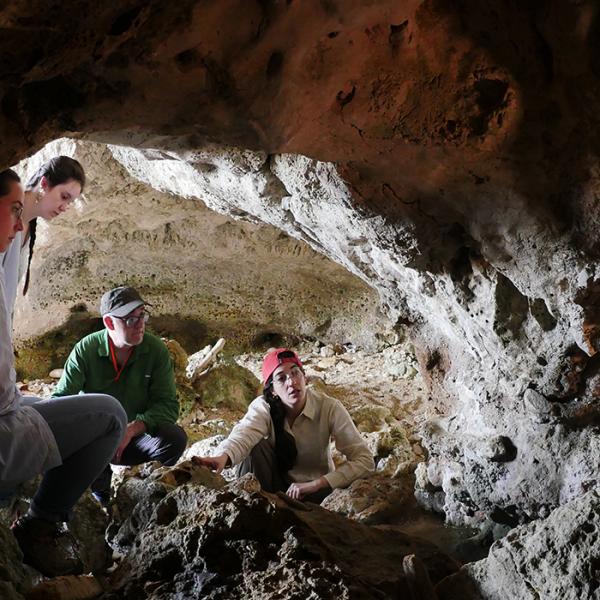Stephanie Musgrave and Oguz Alyanak
The Wenner-Gren Foundation for Anthropological Research, Inc. is a private operating foundation dedicated to the advancement of anthropology throughout the world. Located in New York City, it is one of the major funding sources for international anthropological research and is actively engaged with the anthropological community through its varied grant, fellowship, networking, conference and symposia programs. It founded and continues to publish the international journal Current Anthropology, and disseminates the results of its symposia through open-access supplementary issues of this journal. The Foundation works to support all branches of anthropology and closely related disciplines concerned with human biological and cultural origins, development, and variation.
The Wenner-Gren Foundation has three major goals – to support significant and innovative anthropological research into humanity's biological and cultural origins, development and variation, to foster the creation of an international community of research scholars in anthropology, and to provide leadership at the forefronts of the discipline.
The Wenner-Gren Foundation provides support to anthropology graduate students in a variety of ways, including dissertation fieldwork grants. This year, two graduate students at Washington University in St. Louis have been awarded large grants to continue their work.
 Stephanie Musgrave, a Ph.D. Candidate in Physical Anthropology, was recently awarded a Dissertation Fieldwork Grant from the Wenner-Gren Foundation to support her research on the ontogeny of complex tool skills among chimpanzees (Pan troglodytes troglodytes) of the Goualougo Triangle, Republic of Congo. These chimpanzees have one of the most complex tool repertoires among nonhumans, including four tool sets to gather termites from above-ground and subterranean nests, gather honey, and dip for ants. Drawing on both direct observations and camera trap footage of chimpanzee tool use and social behavior, Stephanie’s research aims to differentiate social learning mechanisms across multiple tool tasks and evaluate competing hypotheses for sex differences in the acquisition of tool skills. This research will provide novel insights into how chimpanzee tool traditions are maintained over generations and assist in modeling how social learning and sexual differentiation in foraging may have contributed to the emergence of complex technology in the human lineage.
Stephanie Musgrave, a Ph.D. Candidate in Physical Anthropology, was recently awarded a Dissertation Fieldwork Grant from the Wenner-Gren Foundation to support her research on the ontogeny of complex tool skills among chimpanzees (Pan troglodytes troglodytes) of the Goualougo Triangle, Republic of Congo. These chimpanzees have one of the most complex tool repertoires among nonhumans, including four tool sets to gather termites from above-ground and subterranean nests, gather honey, and dip for ants. Drawing on both direct observations and camera trap footage of chimpanzee tool use and social behavior, Stephanie’s research aims to differentiate social learning mechanisms across multiple tool tasks and evaluate competing hypotheses for sex differences in the acquisition of tool skills. This research will provide novel insights into how chimpanzee tool traditions are maintained over generations and assist in modeling how social learning and sexual differentiation in foraging may have contributed to the emergence of complex technology in the human lineage.
 Oguz Alyanak, a Ph.D. Candidate in Sociocultural Anthropology, was awarded the grant to support his research, entitled “Fear of the Ordinary: Muslim Turks Negotiate Men's Moral Worth in the Franco-German Borderland”. His research will describe anxieties pertaining to everyday life in Strasbourg as experienced by its Muslim Turkish residents. Preliminary research indicates that these anxieties emanate from fears of moral transgression, which are in part evident in men’s habits of going out and their excursions around the borderland. As he explores the ways in which these anxieties come to frame one’s dwelling experience in a European border town, Oguzl remains attentive to the mental maps that members of the Turkish community in Strasbourg employ in navigating the urban landscape. Conducting semi-structured interviews, administering cartographic surveys and engaging in participant observation, he will explore how Muslim men in Strasbourg struggle to live a moral life amidst uncertainty.
Oguz Alyanak, a Ph.D. Candidate in Sociocultural Anthropology, was awarded the grant to support his research, entitled “Fear of the Ordinary: Muslim Turks Negotiate Men's Moral Worth in the Franco-German Borderland”. His research will describe anxieties pertaining to everyday life in Strasbourg as experienced by its Muslim Turkish residents. Preliminary research indicates that these anxieties emanate from fears of moral transgression, which are in part evident in men’s habits of going out and their excursions around the borderland. As he explores the ways in which these anxieties come to frame one’s dwelling experience in a European border town, Oguzl remains attentive to the mental maps that members of the Turkish community in Strasbourg employ in navigating the urban landscape. Conducting semi-structured interviews, administering cartographic surveys and engaging in participant observation, he will explore how Muslim men in Strasbourg struggle to live a moral life amidst uncertainty.


